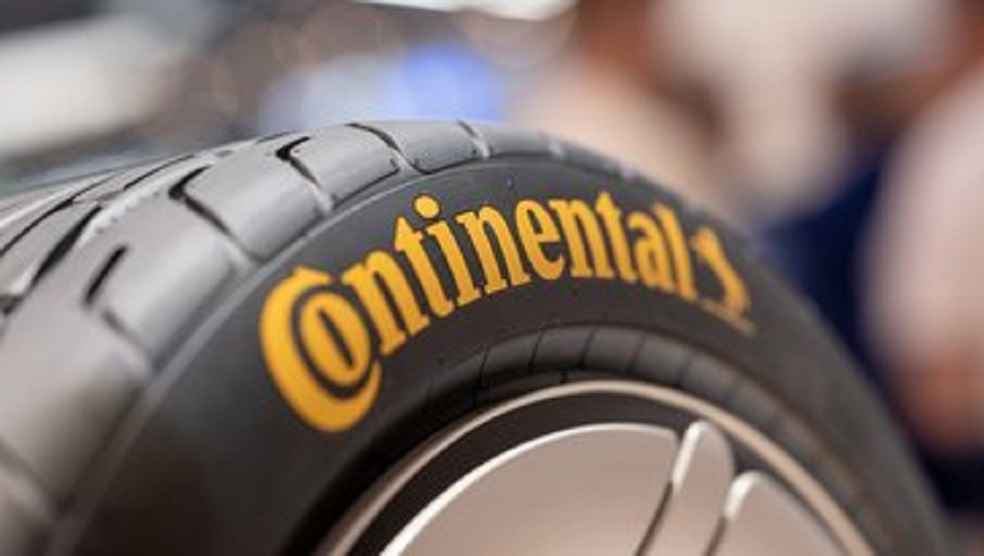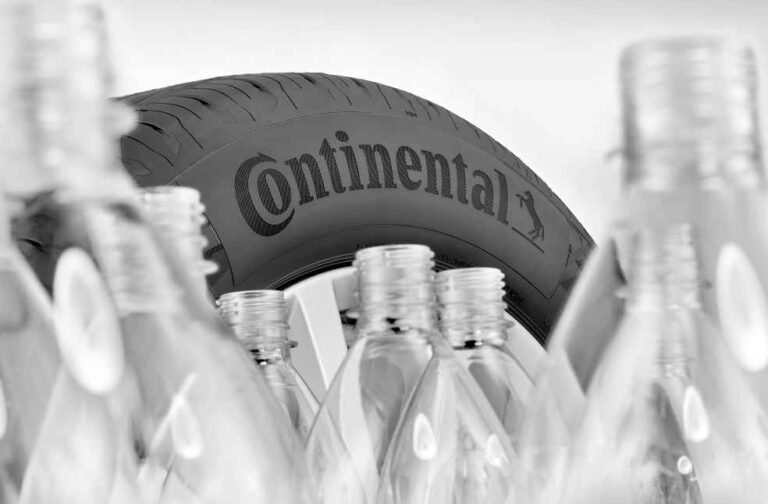Continental is deepening its commitment to sustainable tire manufacturing by increasing the integration of renewable and recycled materials across its production processes.
The company, which currently uses an average of 26% renewable and recycled content in its tires, aims to raise that share to at least 40% within the next five years.
In alignment with circular economy principles, Continental is encouraging suppliers to develop sustainable raw materials for tire production.
A key focus is on finding eco-friendly alternatives to traditional reinforcing materials, mainly steel and textiles, that provide structural integrity and performance throughout a tire’s lifespan.
These materials make up about 18% of passenger-car tire content, and even more in commercial-vehicle or specialty tires.

Continental is progressively adopting recycled steel and polyester yarn made from recycled PET bottles. It is also introducing sustainable innovations such as COKOON adhesion technology, which replaces harmful chemicals with environmentally friendly bonding methods.
Other advanced materials include synthetic rubber derived from used cooking oil, resins from bio-based waste, and silica produced from rice husk ash.
“We are not reinventing the wheel – but we are reinventing the tire, with more sustainable materials and more environmentally compatible production processes,” said Dr. Matthias Haufe, Head of Material Development and Industrialization at Continental Tires.
“Every alternative material brings us an important step closer to our goal of using at least 40% renewable and recycled materials within five years.”
Reinforcing Tires with Recycled Steel and Polyester
Steel and polyester play crucial roles in ensuring tire performance, safety, and longevity. In commercial and specialty tires, steel cords reinforce the carcass, enhancing load capacity and durability, while bead wires secure the tire to the wheel rim.
Steel belts in various tire types improve puncture resistance, tread stability, and ride comfort, contributing to better fuel efficiency and range. Continental has increased the proportion of recycled steel in its tires without compromising safety or performance standards.

The company also employs polyester yarn made from recycled PET bottles to strengthen tire carcasses. Depending on the size, each tire can incorporate material from up to 15 bottles.
Developed with textile manufacturer OTIZ, Continental’s ContiRe.Tex technology transforms PET waste into high-performance polyester yarns verified by SGS. This process cuts CO₂ emissions by around 28% compared to fossil-based alternatives.
The yarn is already used in passenger-car models like the UltraContact NXT, with bottles sourced from regions lacking closed recycling systems.
COKOON: Open-Source Sustainability Innovation
Further advancing industry-wide sustainability, Continental and textile reinforcement supplier Kordsa have co-developed COKOON, a cleaner adhesion technology for bonding textile reinforcements with rubber compounds.
The process eliminates the use of resorcinol and formaldehyde, two chemicals common in traditional textile dips. To promote collective responsibility, Continental and Kordsa have made COKOON available to all tire manufacturers and suppliers as a cost-free, open-source solution.
AUTO TECH | Audi Relaunches myAudi App with AI and Digital Key Features





